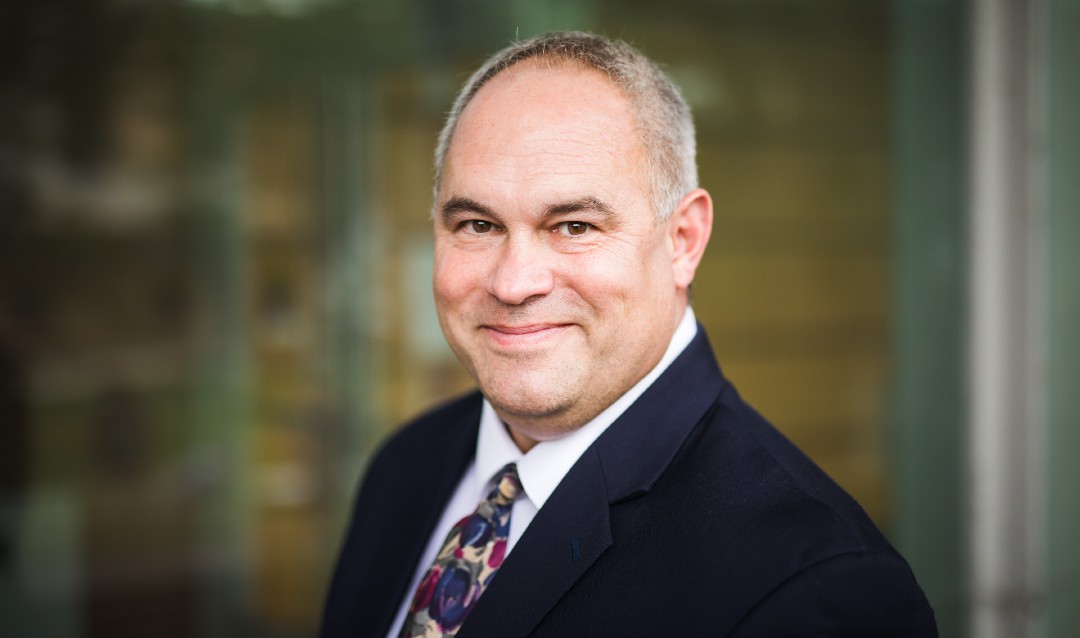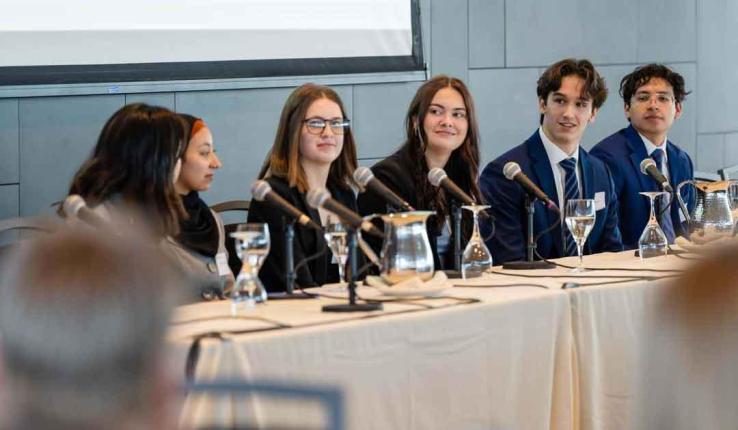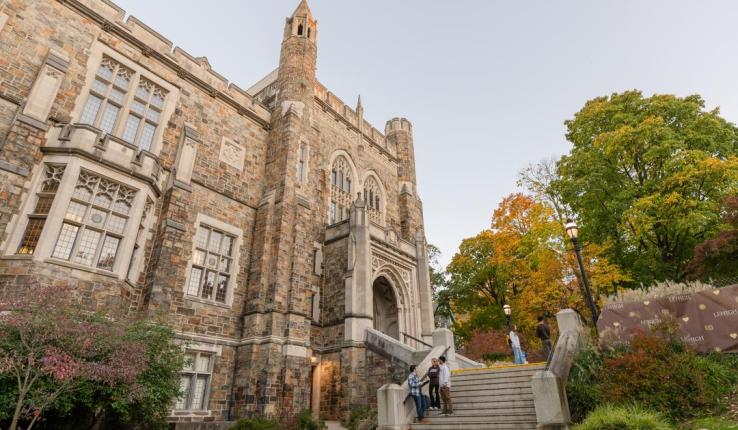Michael Gusmano, professor and associate dean for academic programs in the College of Health, has been named director of Lehigh’s Center for Ethics.
Since its founding in 2018, the Center for Ethics has promoted ethics education, funded ethics-focused research and programming, and facilitated important conversations about the role and importance of ethics in our world today. Through the Peter S. Hagerman ’61 Lecture Series, the center has brought to campus a number of compelling speakers, including former Hewlett-Packard CEO and 2016 Republican presidential candidate Carly Fiorina; Theranos whistleblower Tyler Shultz; Samantha Power, Administrator of the United States Agency for International Development (USAID) and former United States Ambassador to the United Nations; and, most recently, Dr. Arthur Caplan, the Drs. William F. and Virginia Connolly Mitty Professor of Bioethics at NYU Grossman School of Medicine and the founding director of the Division of Medical Ethics.
The center was created through the support of the Class of 1961 Endowed Fund for the Teaching of Ethical Decision-Making, established by Mike Hoben ’61, Paul Smith ’61, the late Joe King ’61, and the late Peter Hagerman ’61 to ensure the seamless incorporation of ethics education into the Lehigh experience.
The center, which has been housed in the College of Arts and Sciences, will now be an initiative of the Office of the Provost.
“The Center for Ethics provides valuable opportunities for all members of the Lehigh community to engage deeply with complex questions and incorporate ethical thinking into their work as scholars and leaders, and into their lives as members of society,” said Nathan Urban, provost and senior vice president for academic affairs. “I hope to see even more engagement with the center by students and faculty from across the university, and I am confident that the center’s impact will continue to grow under Michael’s leadership.”
Gusmano, who arrived at Lehigh in Fall 2021, plans to work closely with members of the Lehigh community who have been working with the center to leverage existing resources and increase participation across the university. He envisions a forum through which faculty and students can present their work in ethics to broader audiences and hear from individuals outside of Lehigh from a variety of fields dealing with ethical issues. The Peter S. Hagerman ’61 Lecture Series remains a priority, as does collaboration with faculty developing and teaching ethics courses. The Center will continue to offer grant opportunities for research and programs related to ethics.
“The study of ethics really is about systematically thinking about the way the world ought to be and helping people develop the kinds of skills to approach those questions and to recognize that it's about developing arguments around those kinds ethical claims, and not merely viewing this as an assertion of opinion or the triumph of a particular ideological or religious doctrine. This is about a sort of lifelong curiosity,” Gusmano says.
“If you think about what's happening in the world now [and] what's happening in U.S. politics, it's perhaps overly simplistic, but some of it is a real crumbling of trust in institutions and processes and a belief that the way we make collective decisions is fair or just. That's true from people on the left and the right. And so paying attention to what kinds of processes are just [and] are fair is an important part of what ethics does as well, beyond thinking about substantively who should get what. It's about [asking], how do we live together when we disagree?”
Gusmano received his Ph.D. in political science from the University of Maryland College Park and an M.A. in public policy from the State University of New York at Albany. In addition, he was a postdoctoral fellow in the Robert Wood Johnson Foundation Scholars in Health Policy program at Yale University. He most recently served as director of the health systems and policy concentration at the Rutgers University School of Public Health.
Much of Gusmano’s research has focused on health and social policy in the United States and abroad. He has written four books and more than 100 journal articles. In a recent opinion piece for the Washington Post, Gusmano analyzes recent advances in animal-to-human organ transplants.
“My empirical work really zeroes in on the consequences of public policies, particularly for poor and vulnerable populations. I spend a lot of time looking at issues of health inequalities and inequalities in the use of health care, and I also spend a lot of time thinking about issues of voice and democratic control, and how policies get shaped in the first place. So I've done a number of projects looking at things like broad public deliberation, and the degree to which poor and vulnerable populations actually do have a voice in the policies that shape their lives,” he explains.
Gusmano serves as co-director of the World Cities Project and has served as a research scholar at the Hastings Center, the world’s premier bioethics research institute, since 2010. He continues that collaborative work today, which includes examining the ethics of emerging technologies, including those related to genetics, and the ethics of health care. The work of the Center for Ethics, however, will continue to be far more broad, he says.
“We certainly are not going to want to define ethics strictly in terms of health or health care or bioethics. It's about ethics in business, engineering and education, so I think there's still going to be a major role played by faculty from throughout the university at the center, and in thinking about other domains and ways in which sound ethical analysis can inform practice and research,” Gusmano says. “...I want it to remain a Center of Ethics in which the study of ethics is used to unpack really important normative questions in all the domains of life and fields of study that the colleges at Lehigh investigate. And so I'm really enthusiastic about engaging with people throughout the campus.”





